An arrest, a suicide and fears of internment camps as India debates new citizenship law
Ali was declared a "foreigner" in Assam, and the consequences were devastating.
GUWAHATI and LONDON -- Ajbahar Ali, a 56-year-old small farmer in the northeastern Indian state of Assam, vividly remembers the day he was arrested in May 2016.
"For what reason or why they took me, I do not know," he told ABC News. "There was a case against me for two years. Border police came and arrested me … I don't know if they made a mistake."
He says he was taken from his house in Kheluapara Village, a tiny settlement of around 200 households, to the nearest police station, then to Bongaigaon, a major city. Ali's son, Moinul Hoque, received a phone call, and immediately rushed on his motorbike to find his father.
They didn't know it at the time, but Ali had been identified as a suspected illegal immigrant by the Border Organisation of the Assam Police, a group tasked with detecting illegal immigrants.
Yet, unbeknownst to him, Ali had already been declared a "foreigner" at one of Assam's specialist tribunals.
Far from the Indian capital of Delhi, the scene of violent communal riots between Hindus and Muslims this week, the state of Assam has been a test case for the National Register of Citizens (NRC) and, more recently, the Citizenship Amendment Act (CAA), twin new citizenship regulations supported by the ruling Hindu nationalists that have sent shockwaves through the nation.
The CAA, passed in December 2019, leaves the path open for non-Muslim illegal immigrants to obtain Indian citizenship. The NRC, meanwhile, is a census-like exercise to determine who is a legitimate citizen, which began in Assam in 2015, the year before Ali was arrested.
Ali claims that three generations of his family have lived in Assam, and is adamant he has the documentation to prove it.
His ordeal over the past three and a half years has been relentless and filled with tragedy.
After he was detained, the family scrambled to find money for a lawyer. His case moved from a foreigners' tribunal, to the High Court, and then to the Supreme Court in September. The mounting costs – 60,000 rupees ($842) – meant they were desperate, selling their land, cows and a small mobile repair shop that Hoque ran. The family's monthly income was 20,000 rupees per month ($275) from their shop.
They still owned a small plot, but by the end of the ordeal, even that wasn't fully theirs.
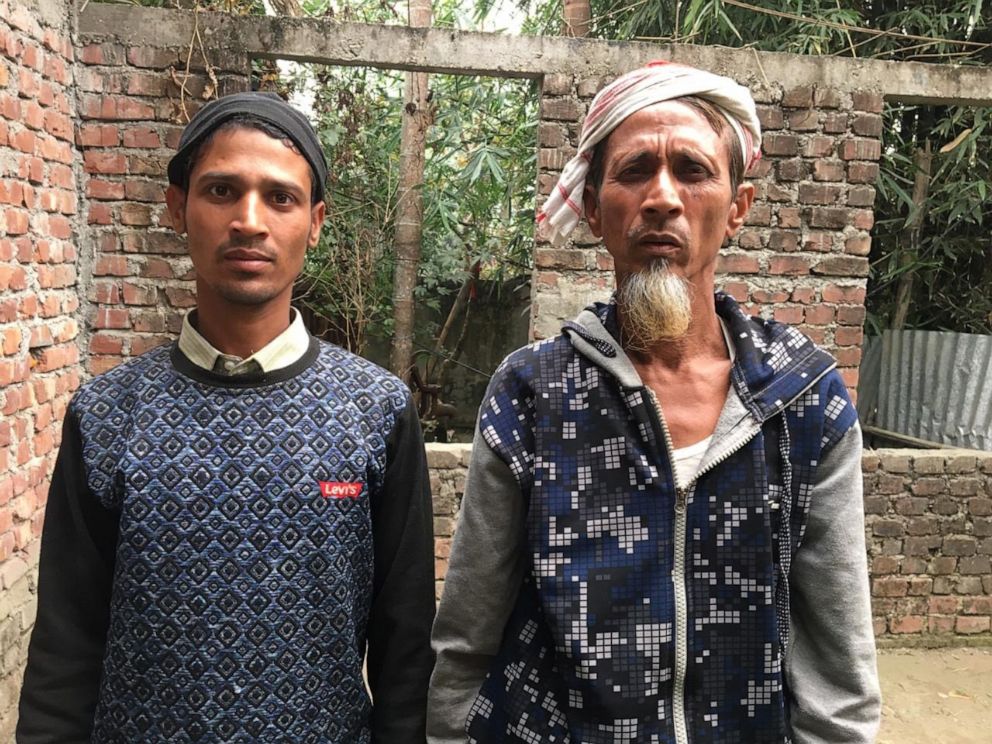
"I asked my mother if we could mortgage the land," Hoque said. "She agreed."
In the early hours of Sept. 24, 2016, Hoque said he returned after meeting with their lawyer. His mother, Balijan Bibi, was awake. They had a brief conversation and she told him to go to bed.
A few hours later, one of Hoque's siblings found his mother hanging in her bedroom, he said.
They drove her to the nearest hospital in Bongaigaon, who he said referred her to a medical college in Barpeta, more than an hour's drive away.
"Barely a kilometer from the Barpeta hospital, my mother passed away," Hoque said.
His father emphatically believes it was the circumstances of his detention that tore their family apart.
"She was worried about me, worried about money and that is why she killed herself," Ali said.
All their money was spent on legal fees, Hoque said, and now struggle to make 100 rupees ($1.40) per day.
Ali is now free on bail after the Supreme Court ordered conditional release of all those who have spent three years or more in immigration detention. But the system under which he was tried and detained and that irreversibly changed his life is now poised for a massive expansion.
The story of Ali and his family is one small part of a national debate that strikes at the very heart of what it means to belong to a nation.
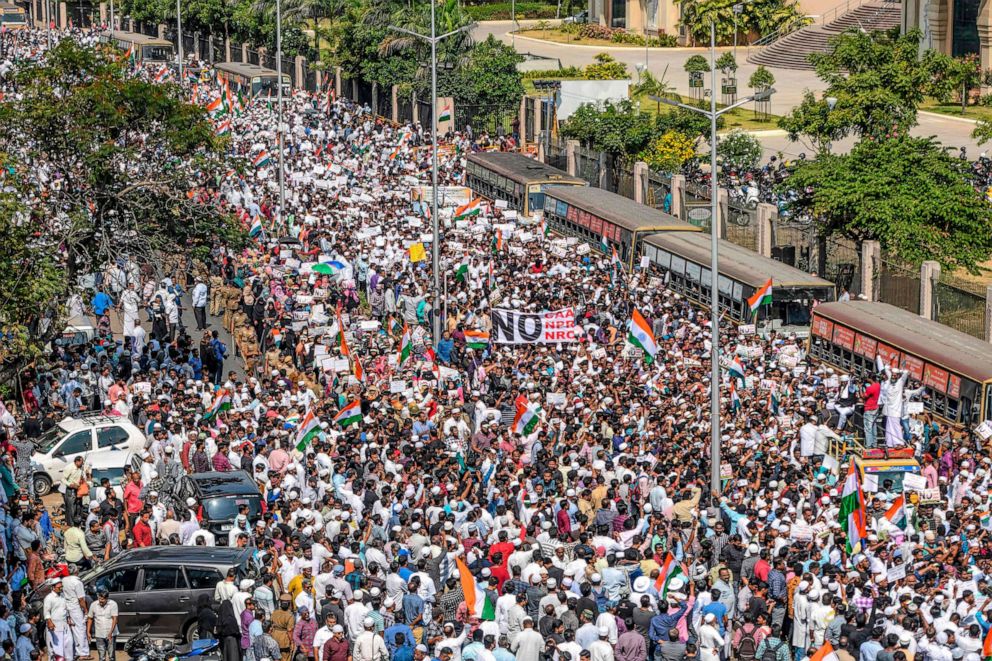
Redefining citizenship and deadly riots
The government has said the CAA does not affect Indian citizens, but instead helps streamline the avenue to citizenship for non-Muslims from neighboring countries without proof of ancestry.
"It only provides a mechanism for some migrants who may otherwise have been called "illegal" depriving them of opportunity to apply for Indian citizenship provided they meet certain conditions," a spokesperson for the Ministry of Home Affairs said in response to criticism of the law in December.
Proponents of the amendment say it will grant sanctuary to those fleeing religious persecution, while critics argue that, by exempting Muslims, it enshrines religious discrimination into law and is unconstitutional.
Since the law was passed, protests have engulfed India, home to an estimated 200 million Muslims (11% of the world’s Muslim population). Activists have accused the police of brutality and inaction. In one shocking instance, they were accused of standing by as a gunman opened fire on protesters in Delhi. The police later said they had arrested the suspect but provided no further response to the allegation they had stood watching.
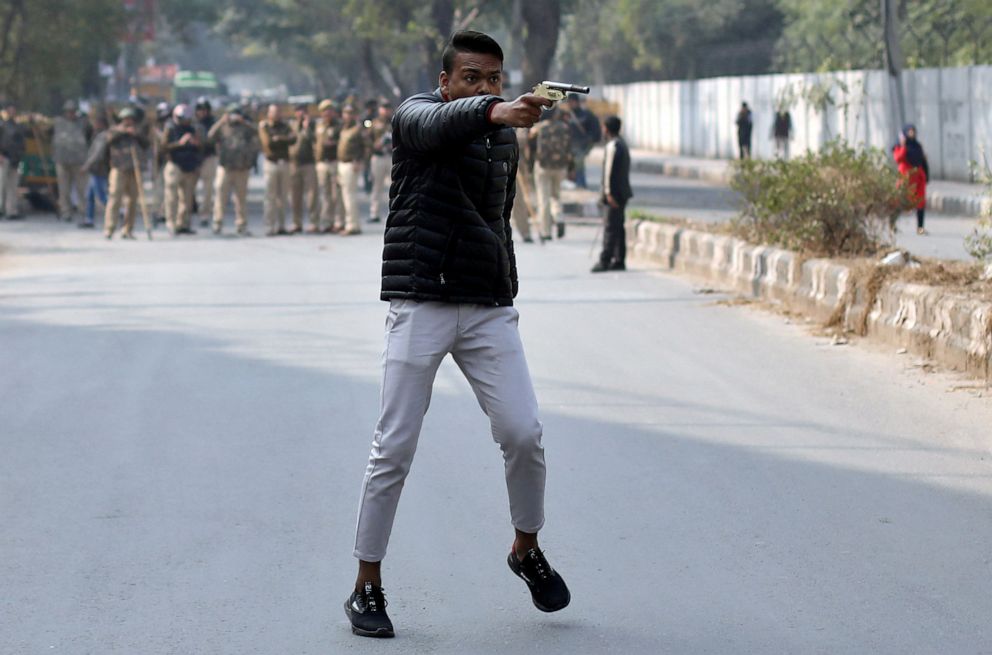
Deadly rioting broke out as protesters for and against the citizenship law clashed on the streets of Delhi during President Trump’s recent trip to India, leaving at least 40 people, including a police officer, dead. More than 250 injured were over the span of three days. Reports on social media and in the local press have said that Hindu mobs later targeted Muslim localities and mosques, while the Delhi Police force has been accused of a "dereliction" of its duty.
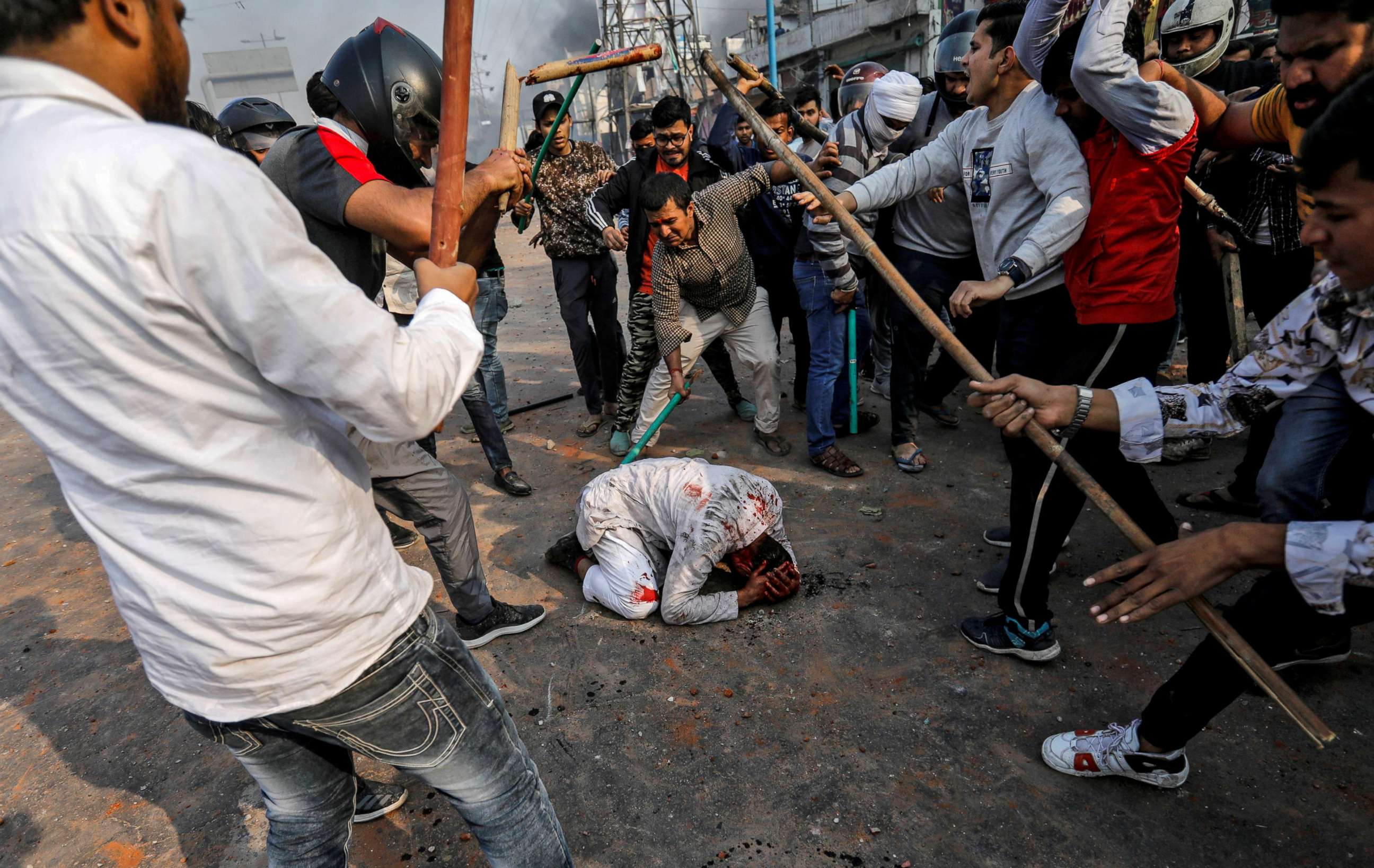
The founding fathers of Indian independence from British rule in the 1940s, the likes of Mahatma Gandhi, envisaged a secular nation, building a constitution where Hindus and Muslims were equal under the law. The violence in Delhi prompted questions as to whether the country was descending into sectarianism, even as Trump went as far as to praise Prime Minister Narendra Modi for his promotion of religious unity in response to a question about the new citizenship laws.
Yet Modi's Hindu Nationalist agenda since coming into power has been contrary to the founding fathers' notions of secularism, with the new citizenship law appearing to be a bid to remake India along Hindu lines, according to Dr. Nikita Sud, Associate Professor of Development Studies at the University of Oxford.
"The BJP [led by Modi] is the political face of Hindu nationalism in India," she told ABC News. "[For traditional Hindu nationalists,] a Hindu is someone who considers India to be their homeland and their motherland and the land of their religion. So the Holy Land and the motherland is, by definition, leaving out, say, Muslims or Christians who might well consider India their motherland and they might be born in India."
Indeed, one of the more chilling developments has been the rehabilitation of the image of Gandhi's killer, Nathuram Vinayak Godse, an extreme Hindu nationalist, who believed that Gandhi had betrayed India's Hindu majority by conceding too much to Muslim interests. Over a dozen statues dedicated to Godse have been erected across the country, according to the New York Times.
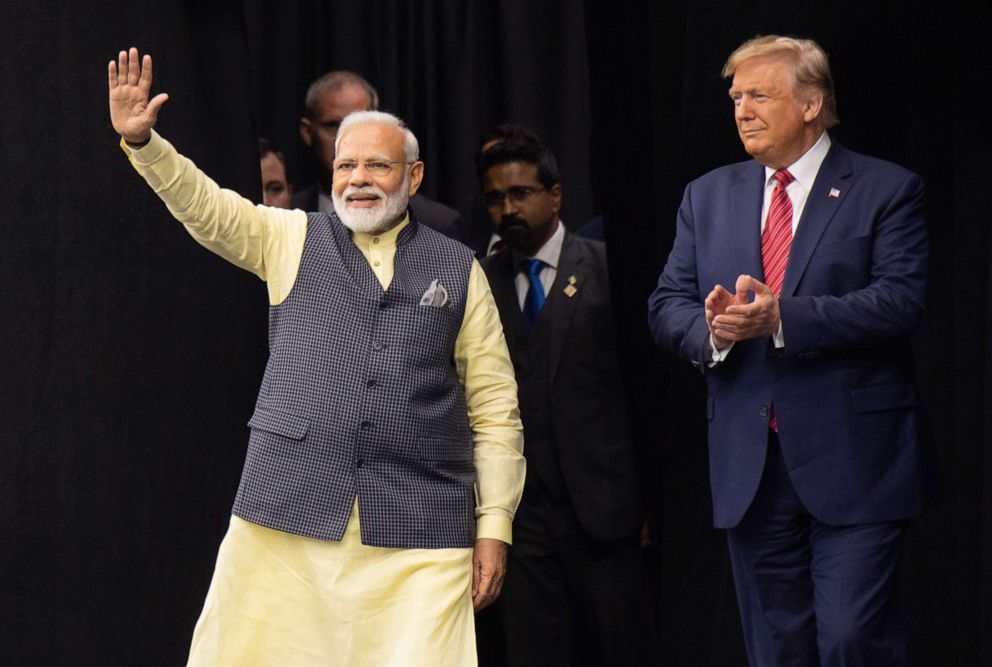
‘A Muslim filter’
It is feared that sometime in 2021 the CAA will be followed by a nationwide rollout of the NRC – under which Indian citizens across the country will have to produce documents to prove they and their parents were born in the country.
Human rights groups and opposition politicians have repeatedly warned of the potential abuses of the CAA and NRC. The government, meanwhile, has shown no signs of backing down, claiming the CAA is not designed to remove anyone’s citizenship.
Critics see the changed citizenship law as essentially a "Muslim filter," which will put Muslims at risk of arbitrary detention, according to Dr. Adil Hossain, a journalist and academic at the University of Oxford.
"Millions of people don't have documents," Hossain told ABC News. "All the people belonging to other religions will be given citizenship or protection from the CAA. But when the NRC will be encountered, Muslims will be paperless, identified, and they will either be put for deport[ation] or in detention centers."
The government has repeatedly denied this claim. In December, the Ministry of Home Affairs, the government department in charge of the law, issued a statement saying "Shah reiterated that the Bill is not against any Minority in India and the rights of each Indian Citizen will be equally protected" and "the only religion that Modi government follows is the Constitution of India." However, the Home Minister, Amit Shah, widely seen as the architect behind the citizenship laws, has been accused of stoking sectarian resentment, having once described Bangladeshi migrants in Assam as "infiltrators" and "termites," prior to passing the CAA.
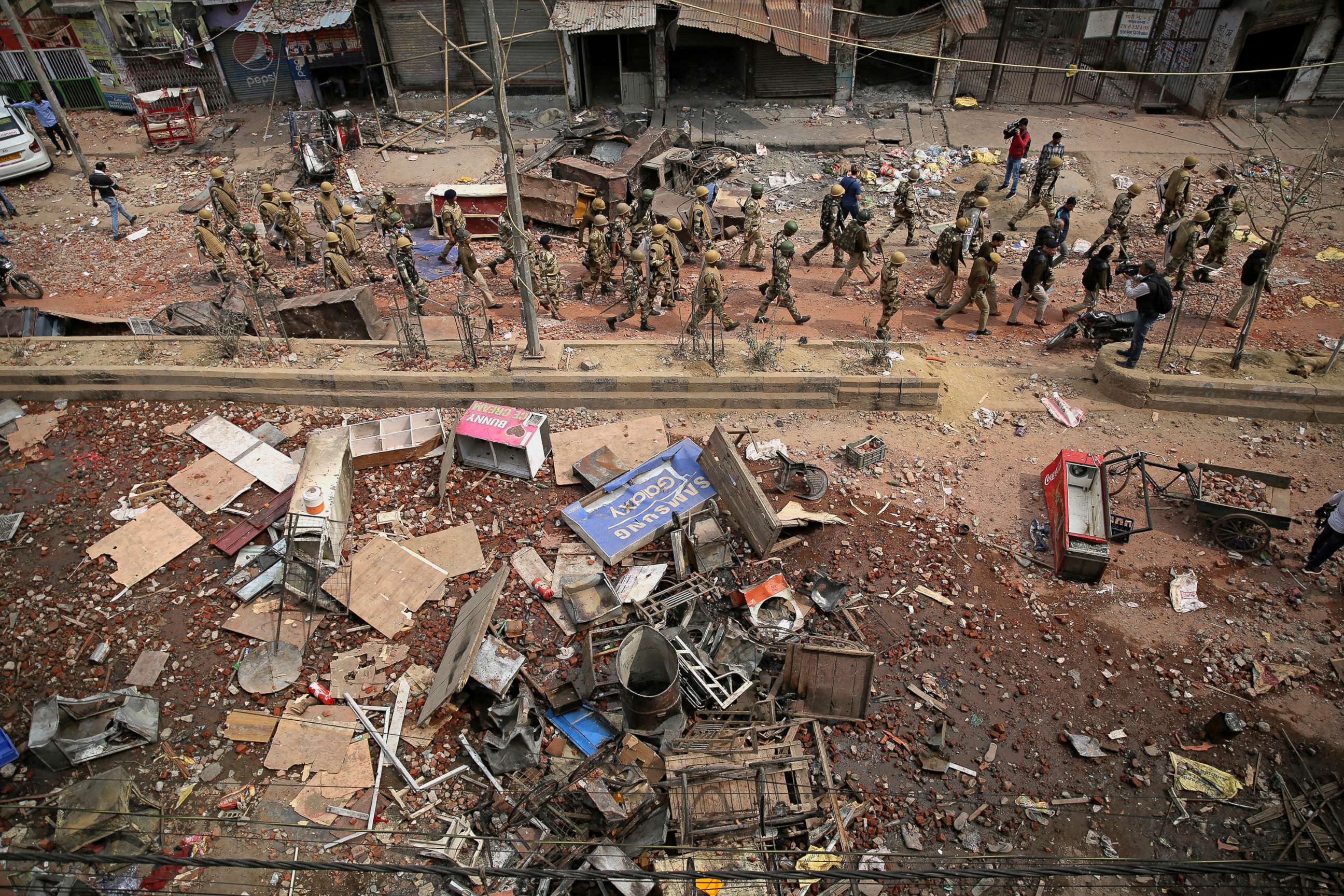
Although the government says the law is intended to naturalize foreign nationals fleeing persecution from neighboring Muslim-majority countries, a basic fact of Indian life is that the vast majority do not have papers to prove they are citizens.
"That is what the protest is all about," Sajal Nag, former Professor of History at Assam University, told ABC News. "That after 70 years of independence, generations of people who have born and died [in India], and now you are asking people for papers. India is a country that started the system of filing birth certificates only about 30 years back."
Nag was born in India, but beyond records showing he was schooled there, he says he cannot prove it – just like millions of others across the country.
"Most Indians don't have papers. I don't have papers. My forefathers came from East Pakistan [modern day Bangladesh], but I don't have any papers to prove I am a citizen of India," he added.
Although protests have been raging for months, most of the fears surrounding the CAA and NRC are hypothetical. But in Assam, some of those fears already appear to be playing out.
The case of Assam
There are currently 130,000 people who have been declared "illegal immigrants" by the foreigners' tribunals in Assam, Ali among them, out of a state with around 30 million people. They have been rendered virtually stateless – stuck in India, not in jail, but living in limbo with none of the benefits of being a citizen. Bangladesh, the bordering country the "illegal immigrants" are accused of belonging to, has said it is unwilling to repatriate them.
But under the provisions of the NRC, the number of those declared foreigners appears set to rise sharply.
The NRC, which was first taken in Assam in 1951, has now been updated, after demands from local groups who believe that hundreds of thousands of migrants from Bangladesh have entered Assam and taken over land, jobs and other resources. Assam has seen protests against the citizenship laws, but for different reasons than the rest of India – many locals want the law to exempt all illegal migrants from gaining citizenship. The state has a long history of anti-immigrant sentiment, partly because it lies on the border with Bangladesh – the third largest migration corridor in Asia, according to the World Migration Report 2020.
The process of updating the NRC began in 2015. The final list was published on Aug. 31 of last year, and it immediately became apparent that the scale of the register, even in a relatively sparsely populated state such as Assam, had the capacity to fundamentally reshape the state.
In total, 31.1 million people were found to be legitimate citizens. But 1.9 million were left off the register, according to the government, including Ali's son, Hoque.
Having already spent 400,000 rupees on legal costs in the case of his father, Hoque will now have to submit documents to Assam's foreigners' tribunals to prove he qualifies as a citizen, all the more doubtful now that his father has been declared an illegal immigrant.
"We are scared that me and my father's name has not come in [the] NRC," Hoque told ABC News. "We don't know what will happen in future."
Once marked as a suspected illegal immigrant by the Border Police or left off the NRC, the onus is on the individual to prove that they are Indian. In other words, the individual must produce the documentation, and prove their legitimacy, to the authorities. If they cannot prove their ancestry, they will join the 130,000 already declared as "foreigners." Guilty until proven innocent.
Now that the new citizenship law has come into play, non-Muslims without the correct documentation have a path left open to achieve Indian citizenship. For Muslims, by omission, their status as a "foreigner" will be final.
Meanwhile, the tribunals' processes have been marred by accusations of sloppy investigations and singling out suspects arbitrarily, with Amnesty International describing them as "biased and discriminatory."
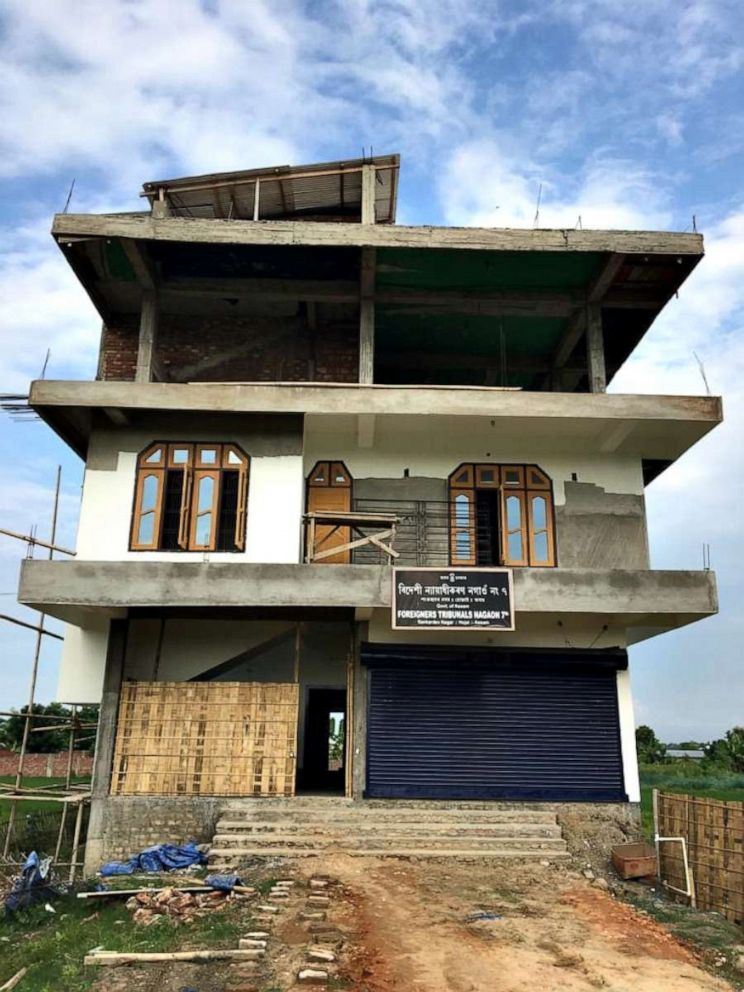
The government said nobody who was excluded from the NRC would be put in detention until "all legal remedies are exhausted," and have promised to provide legal aid for the most needy.
In Ali's case, poor recordkeeping saw him named a suspect not once, but three times on the same charge that he had entered Assam from neighboring Bangladesh.
In fact, when he was asked to appear in front of the tribunal on May 18, 2016, he had already been declared a foreigner three months previously.
Singha Ram Mili, the Police chief of Bongaigaon, told ABC News that "usually it does not happen that the same person is booked more than once," as happened in Ajbahar's case. Mili defended the Border Police, saying that "the inquiries are initiated only when the inquiry officer visits the village and finds that the suspect has failed to produce documents."
Detention camps
Despite the alleged shortcomings in the legal process, the NRC is expanding.
To streamline the huge undertaking of identifying suspected migrants, the Assam Border Organisation is creating a centralized database with biometric information of all suspected foreigners to keep track and ensure they are unable to access state provisions once they are declared foreigners by the tribunals, at the cost of 990 million rupees ($13.8 million).
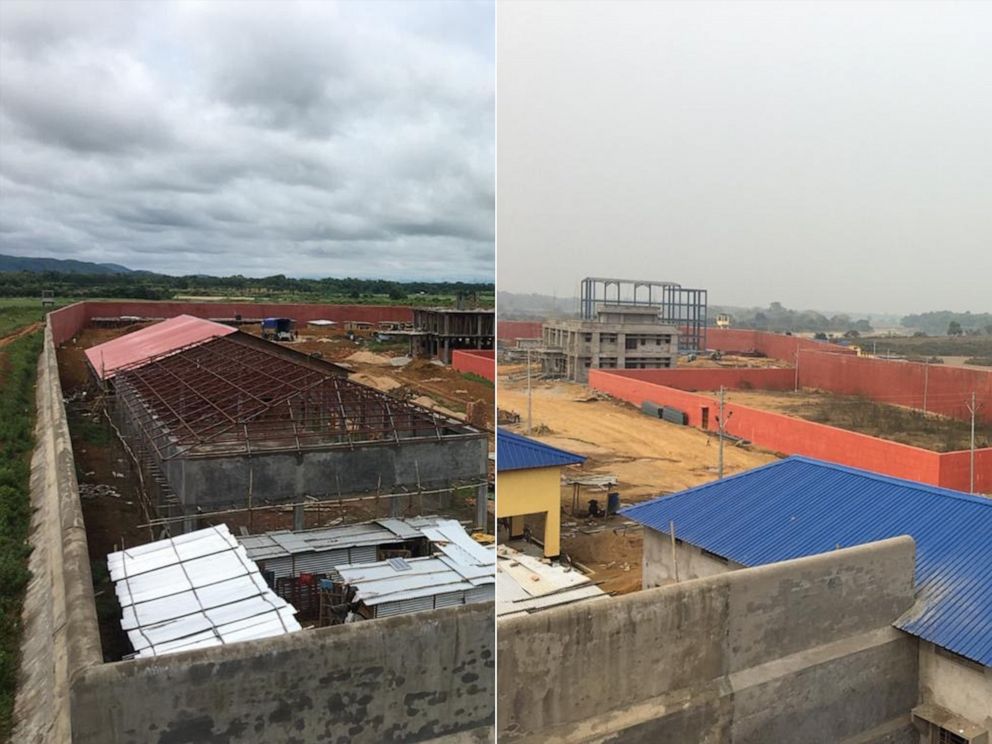
ABC News traveled to Assam's Goalpara district, located close to the Bangladesh border, where a specialist camp to house those deemed to be foreigners is under construction. Currently, there are less than 1,000 "illegal immigrants" detained in six temporary camps in jails around Assam.
But the new specialist facility is expected to hold an estimated 3,000 detainees, and is complete with school facilities. The facility is the first of 10 other detention centers planned in Assam to cope with the numbers expected to be declared as foreigners.
"The fear is that the government is such that before you go to court you might be sent to a detention camp, and spend months and years in a detention camp before they finally prove they are Indian citizens," Nag said.
The presence of the camps has also stoked fears that the NRC could lead to a Uighur style-detention of Muslims in Assam, and when the NRC is rolled out across the whole of India.
"The plan is obviously that the detention camps will be made throughout India," Hossain told ABC News. "[But] we are always asking: what is the end game? We don't know the end game."
The central government claims it is not responsible for the number of detention centers individual states build. In January last year, the Ministry of Home Affairs announced that the central government had "circulated a Model Detention Centre/Holding Centre Manual" to all Indian state governments, though it is not yet clear how many specialist migrant detention centers are being built nationally.
However, India does not necessarily have the bureaucratic capabilities to enforce the Assam model nationwide.
"The difference is that China has a very top down state that is able to take millions of people and put them in so-called de-radicalization camps," according to Sud. "In India, one hopes that the size and the sort of slight chaos of Indian politics will make this task very hard."
For Ali's family, the other 1.9 million people left off the NRC in Assam, and those who could be affected by a nationwide register, this remaking of what it means to be an Indian will have very real consequences.
"I am an Indian," Ali says.
But exactly what it means to be an Indian is changing, with religion more influential in defining citizenship than ever before. As it stands, Ali's claim alone will not be enough to spare him, and potentially millions of others, from statelessness.




